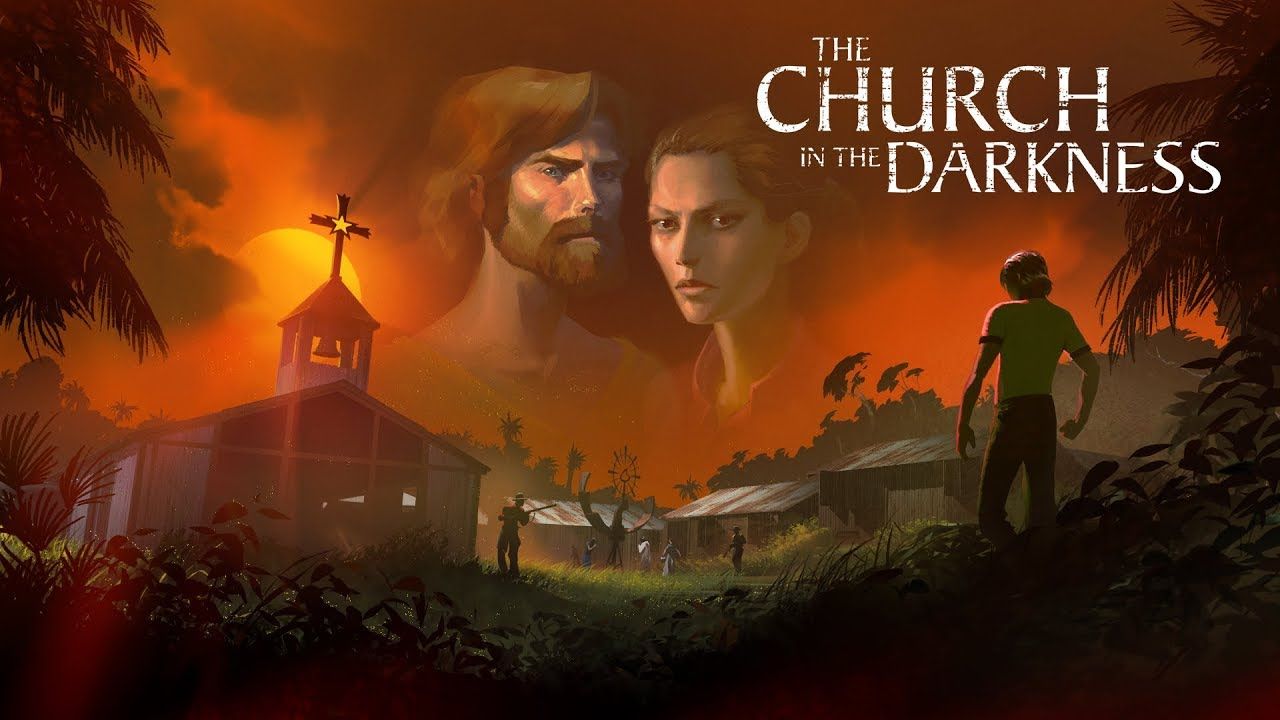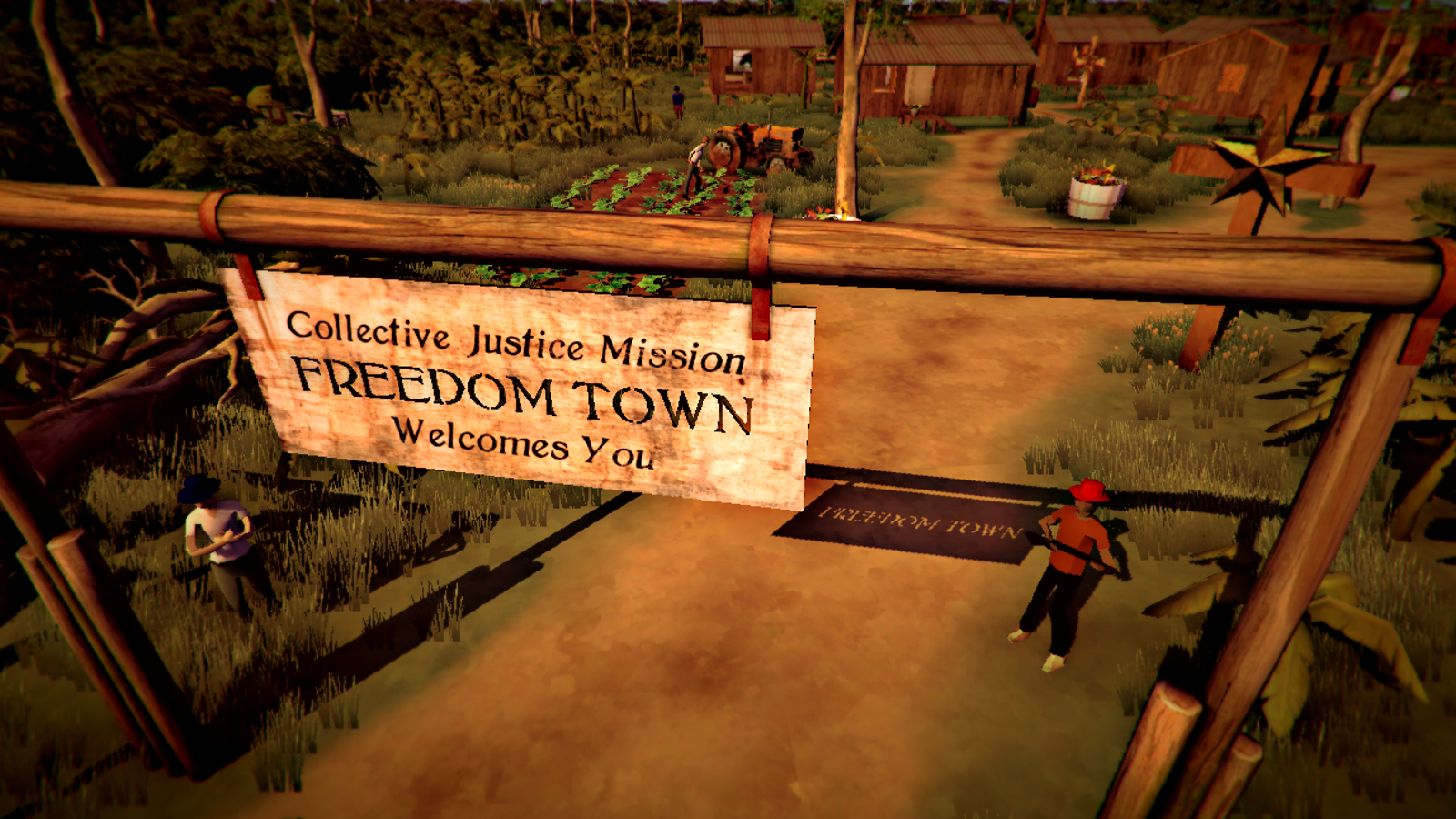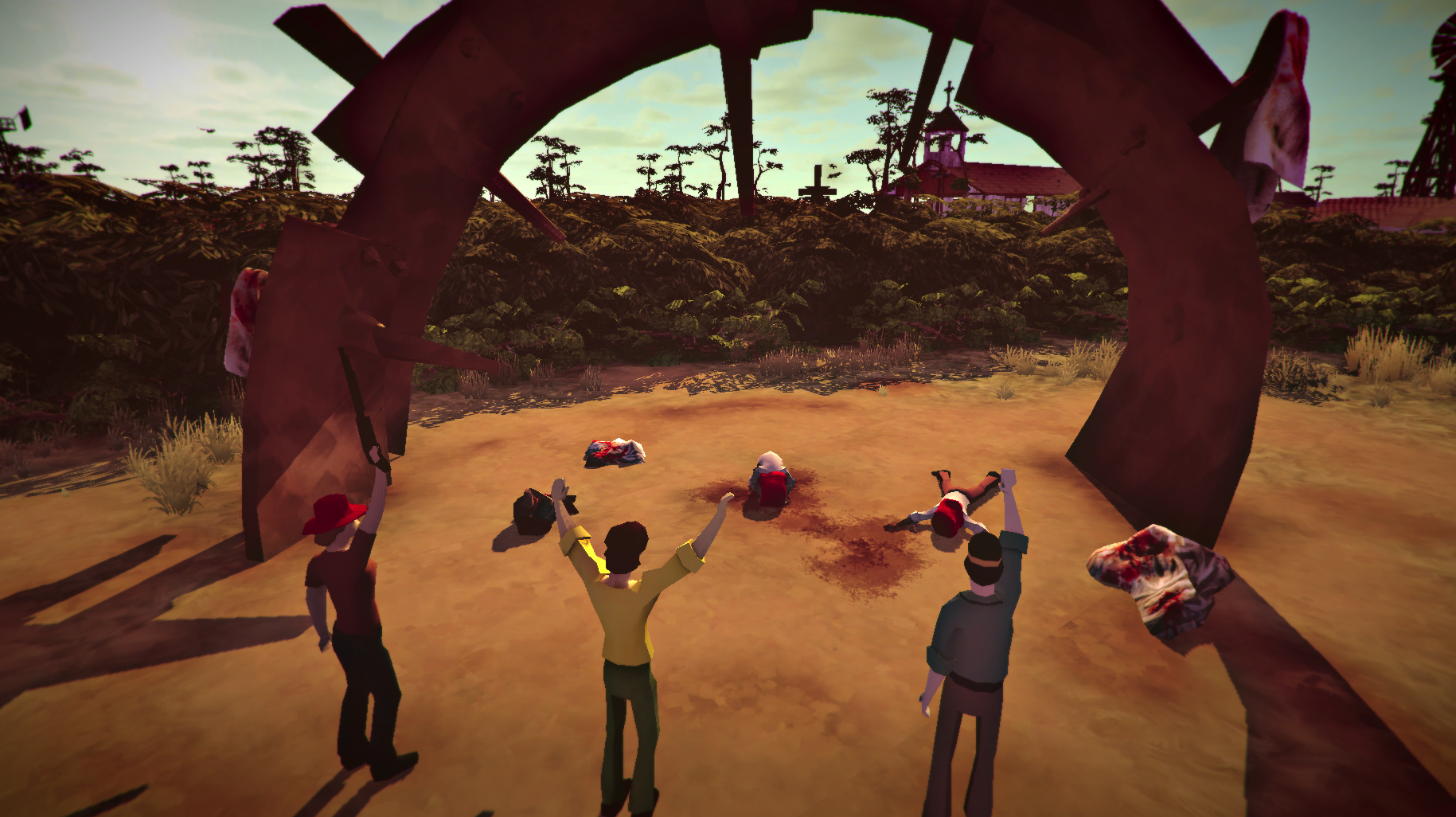Frustrated by the failure of my first few attempts to infiltrate The Church in the Darkness' radical religious cult in order to find the main character's nephew Alex, I decided to make my first successful run as simple as possible. I met with the required individuals, but along my adventure, I did not think much of the fact that the messages of leaders Isaac and Rebecca Walker were spouting over the intercom were quite harsh. I was spotted, so they were alerted to my presence, but I was still able to grab Alex and get out of dodge. A successful run one would think...but then my ending played out. Because of my actions, the Walkers gave everyone cyanide pills and the Collective Justice Mission committed mass suicide, ending both my run and Freedom Town's reign on a somber note.
That anecdotal run sets a tone that's quite indicative of what players can expect from The Church in the Darkness. Paranoid Productions and Fellow Traveler's new game has been on my radar for some time, and from a narrative standpoint, it enthralled me. Unfortunately, some of the technical aspects of the Nintendo Switch version of the game were not able to keep up.
[pullquote]"The Church in the Darkness has been on my radar for some time, and from a narrative standpoint, it enthralled me."[/pullquote]
The Church in the Darkness spices up its roguelike-inspired design with an interesting look at the cult-filled counterculture of the 1960 and 1970s where a more critical viewpoint towards the United States government really started to take hold. Isaac and Rebecca Walker's cult, the Collective Justice Mission, was born of that anxiety and is going surprisingly strong in a fictional South American country. Even though Vic is only in Freedom Town to check up on his nephew, most of the settlement does not take kindly to outsiders and will shoot at the player given the chance. Under this restrictive setup, players must find those within Freedom Town that will help them find Alex before Vic gets captured three times or after killing someone.
Paranoid Productions almost flawlessly slots the Collective Justice Mission into the culture of that era, providing a chilling look at not only the negative sides of movements like this, but the injustices of the United States of America at the time as well. Adding to that feeling, The Church in the Darkness' endings can vary after contact is made with Alex. This is dependent not only on the player's actions, but on those of Isaac, Rebecca, and Alex as well. In some runs, the three may be the peace loving, if a bit odd, religious zealots they claim to be. Some really interesting situations come into play as well, especially in situations where only one of the cult leaders is super radical.
Even if you are not on board with the idea of the cult, some runs do seem to indicate that Isaac and Rebecca may have a point. This uneasiness keeps each of The Church of the Darkness' runs in a captivating and eerily realistic grey area that most games are not able to consistently stay in. The Church in the Darkness is held up the most by its great writing and the performances of John Patrick and Ellen McClain as Isaac and Rebecca, respectively.
The game boasts over 19 endings and runs can last upwards of an hour, so there is definitely a lot to sink one's teeth into. Each run can feel different as well, as the tools, disguises, and weapons players choose to bring in at the start of each run will have an impact on how things play out. For the most part, The Church in the Darkness was able to keep me engrossed with its themes and story; unfortunately, the cracks started to show in its formula the more I played.
Though each character is written and portrayed well, hearing their stories with little variation over and over again with no ability to skip got boring, which was a realization I came to as I checked my phone while listening to Theresa's first monologue for the twentieth time. While runs of The Church in the Darkness can be narratively different, most do follow a relatively similar structure. As combat in this game was truly frustrating to control, most runs ultimately boiled down to running from objective to objective without getting spotted, which quickly got repetitive. This meant that my enjoyment of actually playing the game saw diminishing returns with each run.
While I love almost every aspect of The Church in the Darkness narratively, the other aspects of the game just do not hold up. I understand that the game had to be told from a low-poly, top-down perspective to stay within a reasonable scope for indie developers, but the procedural generation never really worked great. There was a bit of variation, but the map remained mostly the same on every playthrough, so no world in one run was able to distinguish itself from another in significant ways. With this game's story variation, I would have preferred just one consistent map that the player could interact with more intricately.
[pullquote]"The Church in the Darkness is marred by several technical shortcomings that draw players out of the experience and kill the pacing."[/pullquote]
Technical problems, like an occasionally choppy frame rate, also persisted. Even though my aforementioned first successful run was quite impactful, it also showed jank from the start when two guards got stuck in a doorway with each other towards the start of the run. The game also did not know what to do when I healed myself with a medkit just as I was dying. Most egregiously, a glitch left me on a black screen after ending-worthy runs and required a complete reinstallation of The Church in the Darkness in order to be fixed. A lot of people will truly connect or at least be captivated by the story The Church in the Darkness is trying to tell. Unfortunately, the game that contains those elements is not structurally sound.
Even with the Nintendo Switch's hybrid console capabilities being perfect for titles based around doing multiple short runs like this, The Church in the Darkness is marred by several technical shortcomings that draw players out of the experience and kill the pacing. Once the narrative's charm begins to wear off in later runs, The Church in Darkness' flaws really take hold. Still, if you are obsessed with theology, political theory, or cults, you will find a lot to enjoy from the narrative of The Church in the Darkness. It's definitely a game that will be on my mind for some time, for both good and bad reasons.
The Church in the Darkness
- Developer(s)
- Paranoid Productions
- Publisher(s)
- Fellow Traveller
- Genre(s)
- Adventure



